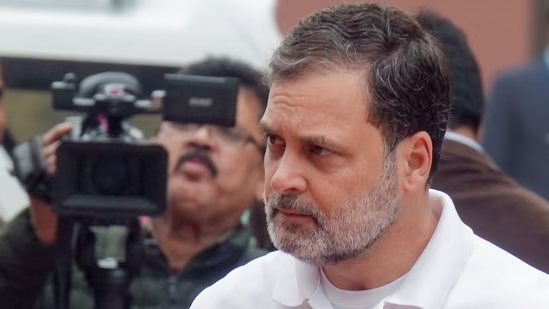HP is preparing for one of its biggest restructuring drives in years. The computer and printer giant announced plans to slash between 4,000 and 6,000 jobs globally by fiscal 2028, as part of a sweeping cost-cutting programme aimed at making the company leaner and more competitive in the age of artificial intelligence. The move, which CEO Enrique Lores describes as a “necessary step to stay competitive,” will reshape the company’s operations and further integrate AI tools across product development, customer support, and manufacturing. However, investors were less enthusiastic, HP’s shares dipped 5.5 per cent in extended trading following the announcement.
Here’s the full story, broken down into five key points.
HP bets on AI to drive efficiency and savings
Under the new plan, HP expects to save $1 billion annually by 2028, mainly by using artificial intelligence to automate and optimise several parts of its business. “It’s something we have to do to make sure the company stays competitive,” Lores told Bloomberg.
AI tools will be deployed in product design, sales, customer service, and manufacturing, with the goal of speeding up innovation while improving customer experience and productivity. Lores emphasised that the company’s restructuring is not just a reaction to market conditions but part of a long-term plan to future-proof HP against technological disruption.
Layoffs to affect these 3 teams
The layoffs will affect teams across product development, internal operations, and customer support, Lores confirmed in a media briefing. “We expect this initiative will create $1 billion in gross run rate savings over three years,” he said.
This is not the first time HP has trimmed its workforce. Earlier this year, the company laid off an additional 1,000 to 2,000 employees as part of an earlier cost-reduction plan. The new cuts, however, represent a more aggressive push toward automation and efficiency.
Demand for AI-powered PCs keeps rising
Despite the job losses, HP remains optimistic about growth in its AI PC segment, where demand continues to soar. The company revealed that AI-enabled laptops accounted for more than 30 per cent of total shipments in the fourth quarter ending October 31.
These next-generation PCs are expected to become a key revenue driver as businesses and consumers increasingly seek devices capable of running on-device AI models for productivity and creativity.
Memory chip costs may squeeze profits
Even as HP leans on AI to cut costs, it faces new financial challenges from rising component prices. Analysts at Morgan Stanley have warned that a global surge in memory chip prices, fuelled by AI infrastructure demand, could pressure profit margins for PC makers like HP, Dell, and Acer.
Dynamic random-access memory (DRAM) and NAND chips, essential for both PCs and servers, are becoming more expensive as Big Tech companies race to expand their data centre capacity. Lores acknowledged that HP expects to feel this impact by the second half of fiscal 2026, though the company currently has enough stock to manage the short term.
“We are taking a prudent approach to our guide for the second half, while at the same time implementing aggressive actions like qualifying lower-cost suppliers, reducing memory configurations and taking price actions,” Lores said.
Weaker outlook for profits
HP’s cautious stance is reflected in its financial forecast. The company expects fiscal 2026 adjusted profit per share between $2.90 and $3.20, below analysts’ average estimate of $3.33, according to LSEG data. For the upcoming first quarter, HP projects adjusted earnings between 73 and 81 cents per share, again slightly below market expectations.
The job cuts place HP among a growing list of tech giants restructuring their operations to embrace AI. According to the recent data, Amazon recently confirmed more than 14,000 layoffs, nearly 40 per cent of which involved engineering roles, while Apple announced small-scale job reductions within its sales teams as part of an effort to “improve how it engages with customers.”
As AI reshapes the corporate landscape, HP’s decision highlights both the promise and the pain of technological transformation. The company is betting that automation will drive innovation and efficiency, even as thousands of employees are set to lose their jobs in the process.






























